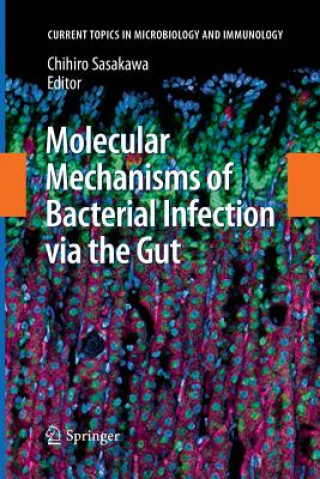
Kód: 01659557
Molecular Mechanisms of Bacterial Infection via the Gut
Autor Chihiro Sasakawa
Our gut is colonized by numerous bacteria throughout our life, and the gut epithelium is constantly exposed to foreign microbes and dietary antigens. Thus, the gut epithelium acts as a barrier against microbial invaders and is equ ... celý popis
- Jazyk:
 Angličtina
Angličtina - Vazba: Brožovaná
- Počet stran: 260
Nakladatelství: Springer-Verlag Berlin and Heidelberg GmbH & Co. KG, 2012
- Více informací o knize

5094 Kč

Skladem u dodavatele v malém množství
Odesíláme za 12-15 dnů
Potřebujete více kusů?Máte-li zájem o více kusů, prověřte, prosím, nejprve dostupnost titulu na naši zákaznické podpoře.
Přidat mezi přání
Mohlo by se vám také líbit
-

Supply Chain Management on Demand
1977 Kč -

Visualizing the Past
4925 Kč -

Elements of String Cosmology
2386 Kč -

Perinatal Psychiatry
3969 Kč -

Applying Generalized Linear Models
3017 Kč -

Explanatory Phonology: Principles And Applications
1577 Kč -

Logic and the Nature of Reality
1681 Kč
Dárkový poukaz: Radost zaručena
- Darujte poukaz v libovolné hodnotě a my se postaráme o zbytek.
- Poukaz se vztahuje na celou naši nabídku.
- Elektronický poukaz vytisknete z e-mailu a můžete ihned darovat.
- Platnost poukazu je 12 měsíců od data vystavení.
Více informací o knize Molecular Mechanisms of Bacterial Infection via the Gut
Nákupem získáte 509 bodů
 Anotace knihy
Anotace knihy
Our gut is colonized by numerous bacteria throughout our life, and the gut epithelium is constantly exposed to foreign microbes and dietary antigens. Thus, the gut epithelium acts as a barrier against microbial invaders and is equipped with various innate defense systems. Resident commensal and foreign invading bacteria interact intimately with the gut epithelium and can impact host cellular and innate immune responses. From the perspective of many pathogenic bacteria, the gut epithelium serves as an infectious foothold and port of entry for disseminate into deeper tissues. In some instances when the intestinal defense activity and host immune system become compromised, even commensal and opportunistic pathogenic bacteria can cross the barrier and initiate local and systematic infectious diseases. Conversely, some highly pathogenic bacteria, such as those highlighted in this book, are able to colonize or invade the intestinal epithelium despite the gut barrier function is intact. Therefore, the relationship between the defensive activity of the intestinal epithelium against microbes and the pathogenesis of infective microbes becomes the basis for maintaining a healthy life. §The authors offer an overview of the current topics related to major gastric and enteric pathogens, while highlighting their highly evolved host (human)-adapted infectious processes. Clearly, an in-depth study of bacterial infectious strategies, as well as the host cellular and immune responses, presented in each chapter of this book will provide further insight into the critical roles of the host innate and adaptive immune systems and their importance in determining the severity or completely preventing infectious diseases. Furthermore, under the continuous threat of emerging and re-emerging infectious diseases, the topic of gut-bacteria molecular interactions will provide various clues and ideas for the development of new therapeutic strategies.Our gut is colonized by numerous bacteria throughout our life, and the gut epithelium is constantly exposed to foreign microbes and dietary antigens. Thus, the gut epithelium acts as a barrier against microbial invaders and is equipped with various innate defense systems. Resident commensal and foreign invading bacteria interact intimately with the gut epithelium and can impact host cellular and innate immune responses. From the perspective of many pathogenic bacteria, the gut epithelium serves as an infectious foothold and port of entry for disseminate into deeper tissues. In some instances when the intestinal defense activity and host immune system become compromised, even commensal and opportunistic pathogenic bacteria can cross the barrier and initiate local and systematic infectious diseases. Conversely, some highly pathogenic bacteria, such as those highlighted in this book, are able to colonize or invade the intestinal epithelium despite the gut barrier function is intact. Therefore, the relationship between the defensive activity of the intestinal epithelium against microbes and the pathogenesis of infective microbes becomes the basis for maintaining a healthy life. §The authors offer an overview of the current topics related to major gastric and enteric pathogens, while highlighting their highly evolved host (human)-adapted infectious processes. Clearly, an in-depth study of bacterial infectious strategies, as well as the host cellular and immune responses, presented in each chapter of this book will provide further insight into the critical roles of the host innate and adaptive immune systems and their importance in determining the severity or completely preventing infectious diseases. Furthermore, under the continuous threat of emerging and re-emerging infectious diseases, the topic of gut-bacteria molecular interactions will provide various clues and ideas for the development of new therapeutic strategies.
 Parametry knihy
Parametry knihy
Zařazení knihy Knihy v angličtině Medicine Other branches of medicine Pathology
5094 Kč
- Plný název: Molecular Mechanisms of Bacterial Infection via the Gut
- Autor: Chihiro Sasakawa
- Jazyk:
 Angličtina
Angličtina - Vazba: Brožovaná
- Počet stran: 260
- EAN: 9783642261121
- ISBN: 3642261124
- ID: 01659557
- Nakladatelství: Springer-Verlag Berlin and Heidelberg GmbH & Co. KG
- Hmotnost: 421 g
- Rozměry: 235 × 155 × 15 mm
- Datum vydání: 25. February 2012
Oblíbené z jiného soudku
-

Good Gut
397 Kč -
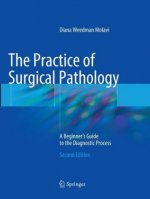
Practice of Surgical Pathology
2357 Kč -

Netter's Illustrated Human Pathology Updated Edition
1342 Kč -

Quick Reference Handbook for Surgical Pathologists
1772 Kč -
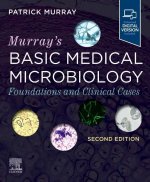
Murray's Basic Medical Microbiology
1083 Kč -

Case Files Microbiology, Third Edition
1426 Kč -
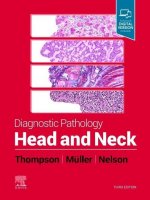
Diagnostic Pathology: Head and Neck
8476 Kč -

Robbins and Cotran Pathology Flash Cards
1093 Kč -

Pocket Companion to Robbins & Cotran Pathologic Basis of Disease
1215 Kč -

Jawetz Melnick & Adelbergs Medical Microbiology 28 E
2931 Kč -

Autopsy Pathology: A Manual and Atlas
7808 Kč -

Atlas of Cytopathology: A Pattern Based Approach
6900 Kč -
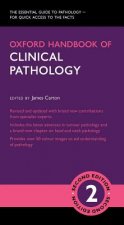
Oxford Handbook of Clinical Pathology
1265 Kč -
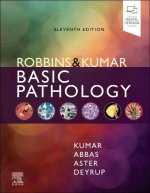
Robbins & Kumar Basic Pathology.
1946 Kč -
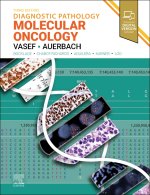
Diagnostic Pathology: Molecular Oncology
10689 Kč -
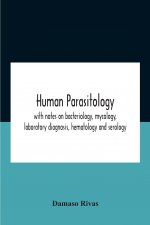
Human Parasitology, With Notes On Bacteriology, Mycology, Laboratory Diagnosis, Hematology And Serology
768 Kč -

Visions of Health
512 Kč -
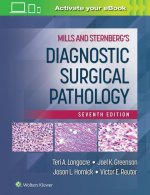
Mills and Sternberg's Diagnostic Surgical Pathology
11801 Kč -
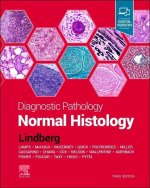
Diagnostic Pathology: Normal Histology
6037 Kč -
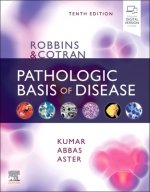
Robbins & Cotran Pathologic Basis of Disease
3121 Kč -
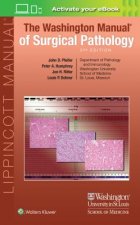
Washington Manual of Surgical Pathology
1958 Kč -
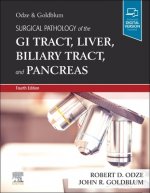
Surgical Pathology of the GI Tract, Liver, Biliary Tract and Pancreas
9985 Kč -

Diagnostic Electron Microscopy
3313 Kč -
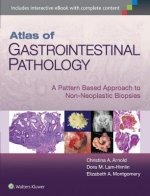
Atlas of Gastrointestinal Pathology
6615 Kč -
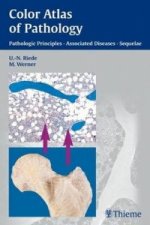
Color Atlas of Pathology
1900 Kč -

Medical Microbiology and Immunology Flash Cards
1369 Kč -
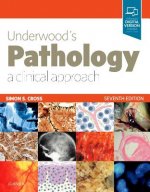
Underwood's Pathology: a Clinical Approach
1726 Kč -

Forensic Medicine
6449 Kč -
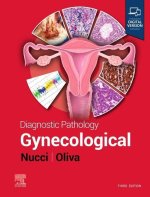
Diagnostic Pathology: Gynecological
7464 Kč -

Diagnostic Pathology: Forensic Autopsy
8114 Kč -
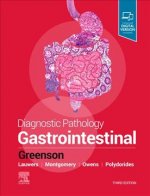
Diagnostic Pathology: Gastrointestinal
6470 Kč -
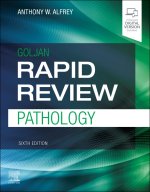
Rapid Review Pathology
1635 Kč -
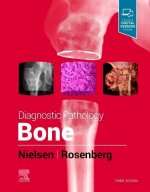
Diagnostic Pathology: Bone
8570 Kč -

Forensic Histopathology
3819 Kč -

BRS Pathology
1616 Kč -

Rosai and Ackerman's Surgical Pathology - 2 Volume Set
10030 Kč -

General Psychopathology
1389 Kč -
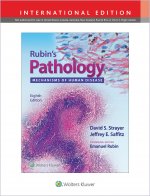
Rubin's Pathology
2847 Kč -
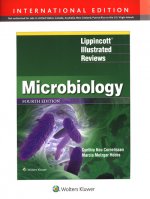
Lippincott (R) Illustrated Reviews: Microbiology
1328 Kč -

Diagnostic Histopathology of Tumors, 2 Volume Set
12349 Kč -
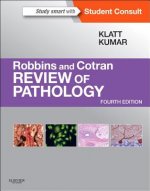
Robbins and Cotran Review of Pathology
1192 Kč -

General Psychopathology
1342 Kč -

Ivermectin and Abamectin
3966 Kč -
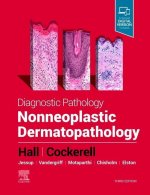
Diagnostic Pathology: Nonneoplastic Dermatopathology
8114 Kč -

Human Parasitology
2574 Kč -

Wheater's Pathology: A Text, Atlas and Review of Histopathology
1566 Kč -
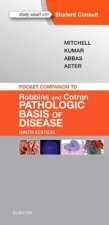
Pocket Companion to Robbins & Cotran Pathologic Basis of Disease
1056 Kč -

Lippincott Illustrated Reviews: Microbiology
1017 Kč -
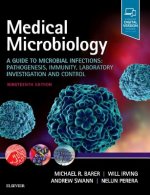
Medical Microbiology
1658 Kč
Osobní odběr Praha, Brno a 12903 dalších
Copyright ©2008-24 nejlevnejsi-knihy.cz Všechna práva vyhrazenaSoukromíCookies


 Vrácení do měsíce
Vrácení do měsíce 571 999 099 (8-15.30h)
571 999 099 (8-15.30h)